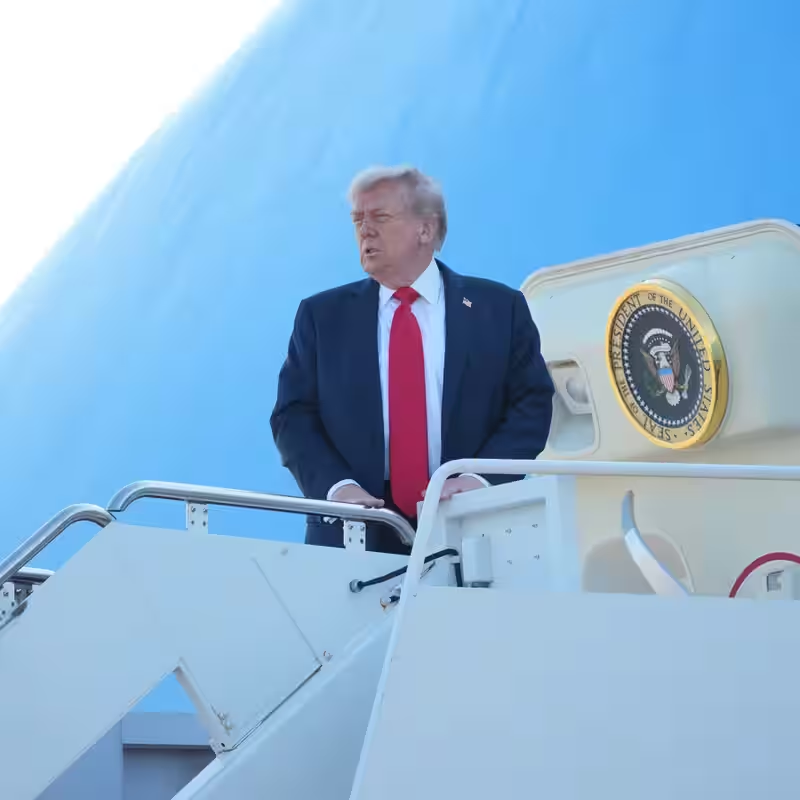Table of Contents
- D.C. Bar Issues Ethics Warning
- The Hidden Conflict in Government Settlements
- Trump’s Legal Web and Law Firm Dilemmas
- What Firms Must Do Now
- Legal Community Reacts
- Sources
D.C. Bar Issues Ethics Warning
In a move that could ripple through Washington’s legal corridors, the District of Columbia Bar’s ethics committee has issued a stark warning: law firms negotiating settlements with the federal government on behalf of Donald Trump may be stepping into ethical quicksand.
The committee’s guidance, released October 28, 2025, states that firms involved in such deals could be violating conflict-of-interest rules—unless they secure explicit waivers from other clients whose interests may clash with the Trump-related settlement.
“When a firm represents a client in a matter that involves a government settlement, and that settlement could adversely affect another client—even indirectly—it triggers Rule 1.7 of the D.C. Rules of Professional Conduct,” the committee wrote.
The Hidden Conflict in Government Settlements
At the heart of the issue is a scenario that’s become increasingly common: a major law firm represents both Donald Trump (or a Trump entity) in a civil or regulatory matter and other corporate or political clients who might be impacted by the terms of a government settlement.
For example, if a settlement includes provisions that alter regulatory enforcement or create favorable precedent for Trump’s business interests, it could disadvantage a firm’s other clients in the same industry—say, real estate developers, financial institutions, or media companies.
Under D.C. ethics rules, such a situation constitutes a “concurrent conflict of interest.” The only way to proceed legally is to obtain informed, written consent from all affected clients.
Trump’s Legal Web and Law Firm Dilemmas
Donald Trump’s sprawling legal battles have long entangled top-tier law firms. From civil fraud cases in New York to federal investigations and defamation suits, his legal team has frequently partnered with elite firms that also represent Fortune 500 companies, foreign governments, and political figures.
This dual representation has drawn scrutiny before—but the D.C. Bar’s latest guidance formalizes the risk. “Firms can’t assume silence equals consent,” said one ethics attorney familiar with the opinion. “If you’re cutting a deal with DOJ that benefits Trump, and you also represent a bank regulated by that same agency, you’ve got a problem.”
What Firms Must Do Now
The D.C. Bar’s opinion doesn’t name specific firms, but it outlines clear steps for compliance:
- Identify all current clients who might be materially affected by a Trump-related government settlement.
- Determine whether the settlement creates a direct adverseness or significant risk of material limitation.
- Obtain informed, written waivers from those clients before finalizing any deal.
- Document the entire process to demonstrate good-faith compliance.
Firms that fail to follow these steps could face disciplinary action—including public censure, fines, or even disbarment for individual attorneys in extreme cases.
Legal Community Reacts
Reactions in the legal world have been mixed. Some ethics scholars praised the D.C. Bar for clarifying murky territory. “This brings much-needed transparency,” said Professor Lena Torres of Georgetown Law. “Clients deserve to know if their lawyer is also shaping policy that could hurt them.”
Others worry the guidance could chill representation. “High-profile clients like Trump already struggle to find counsel,” said a partner at a national firm who asked not to be named. “Now firms may walk away entirely to avoid paperwork—or risk.”
Either way, the message is clear: in the post-Trump legal era, even behind-the-scenes settlements carry public consequences.




